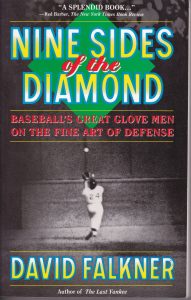Comedian, actor, director
Apparently you can do that on stage.
I mean really.
Yes, my generation is what you get when your entertainment includes Sam Kinison and Bobcat Goldthwaite to Emo Philips and Steven Wright. I’d call it a net positive, but we definitely make jokes that are a little odd at the strangest possible times.
What I most remember is straggling home one New Year’s Eve and discovering that HBO was broadcasting a string of comedy stand-up specials overnight. The sofa was inviting and Bobcat Goldthwaite came on the screen.
Now, I was working, but doing that whole twenty-something deal where you struggle to find your way. Goldthwaite did this bit where he talked about whether or not doing a Police Academy movie was selling out.
I had seen some of the innumerable Police Academy movies. I won’t apologize. For that matter, I watched some of the Porky‘s franchise. I laughed and kissed those brain cells good-bye. I must have, because I remember next to nothing about them other than that I laughed.
Goldthwaite went on to argue that he did not feel bad accepting his first gig in one of the PA flicks. It was signing the contract for the next one and the one after that where he admitted that you really had to question his motives. It had stopped being about the art.
My exhausted brain managed to turn this into a little bit of wisdom. There is nothing so proud as a youth with all his principles in place and nothing so devastating as watching those principles fly smack into life’s realities.

It is hard to argue
that Goldthwaite and Wright, let alone Kinison and Philips, espoused philosophies for modeling one’s life. I suspect they would not make such a claim. But they offered an interpretation of their own experience. Yes, their art was humor-driven- often leading to a warping of their experience to an extreme degree. But it also exposed their humanity, somehow inviting us into a community.
Really, that looks to me like what happened to public lectures. We stopped needing them as a means for sharing information, so they had to evolve. They brought out the artists and went where Twain and Dickens led. The most popular “talkers” became those who could monologue about those matters which made us go- “that’s happened to me- maybe not like that, but it’s good to know that I’m not alone” or “I too have wondered about that and it helps to know that those thoughts do not brand me as a psychotic.” All right, the psychotic thing might be a reach with some of these guys, but they were walking around in public, free as you and me.
Wright and Philips continue to perform brilliantly. Kinison died tragically. Goldthwaite performs occasionally, but has also spent time making some fantastic films. I like to think we all learned something from his Police Academy days.
What’s it all about?
You’ve Got to Check This Out is a blog series about music, words, and all sorts of artistic matters. It started with an explanation. 102 more to go.
New additions to You’ve Got to Check This Out release regularly. Also, free humor, short works, and poetry post irregularly. Receive notifications on Facebook by friending or following Craig.
Images may be subject to copyright.

